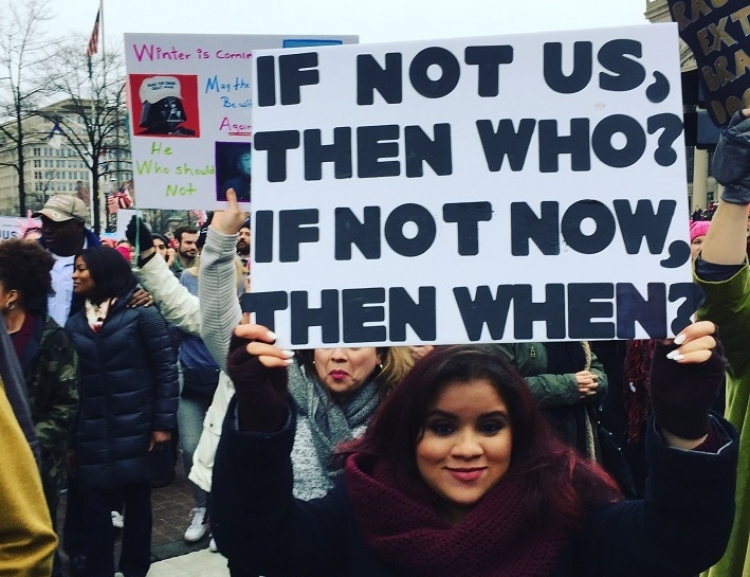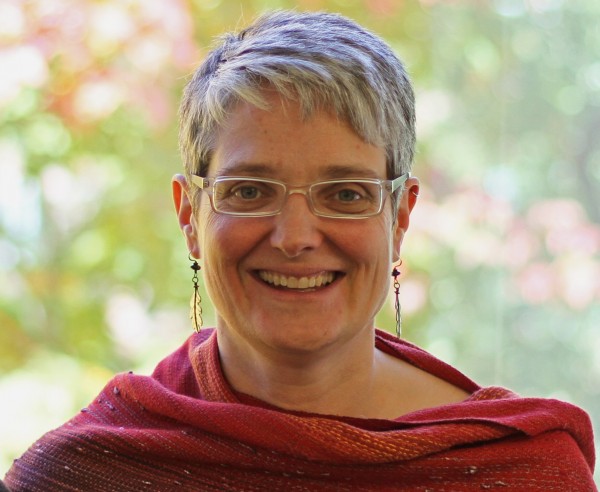
If not now, when? Lucy Duncan / AFSC
“What supports the movement of a religious group to deepen their practice toward racial justice? What structures, learning, and interventions can move a body forward toward deeper relational work for repair and systemic change?”
These questions were on our minds when Vanessa Julye, ministry on racism program coordinator for Friends General Conference (FGC), and I met for lunch about two years ago. We have been friends for years and often work together on racial justice initiatives among Friends. I had the honor of working with Vanessa while I was at FGC and she and Donna McDaniels finished (and FGC published) "Fit for Freedom, not for Friendship: Quakers, African Americans and the Myth of Racial Justice."
That book and the controversy surrounding it taught me so much, and Vanessa lovingly has taught me and sometimes challenged me ever since. I am deeply grateful for that and her uncompromising commitment (and persistence) to envision a Religious Society of Friends that truly does center truth and lives its testimonies deeply through centering racial justice as a core commitment of our faith.
Vanessa and I talked about how to move forward a congregational body in which authority is distributed among the meetings/churches and which has no central congregational authority. For the past couple decades, both of us have struggled to move forward the conversation and offer trainings and resources on racial justice among Quakers. We both wanted to accelerate this work, provoke its deepening and extension. We started dreaming about bringing together all the folks who have been pushing for change around racial justice for a weekend consultation and host a conversation about where the Religious Society of Friends is with regard to this work. We wanted to examine where there have been breakthroughs as well as where the stops and obstacles lie, so we could provoke deeper interventions and work together.
Out of that conversation emerged a proposal, vetted by AFSC and FGC. The Quakers uprooting racism coalition was created, which includes Pendle Hill and Friends Council on Education as well as AFSC and FGC. For the past two years, our working group innovated on that original idea to launch the Quakers uprooting racism community of practice project.
Rather than just a weekend consultation, the project invites Quakers or people with deep Quaker affiliations (membership is not required) to join a cohort of racial justice practitioners over 10 months to learn together, to deepen skills and understanding, to create a shared analysis, and to develop action and intervention plans to accelerate racial justice among Friends. We are committed to racial parity for members, a substantial representation of young and queer Friends, and geographic diversity. Lisa Graustein and Niyonu Spann, who for years have co-led Beyond Diversity 101 sessions and supported the Religious Society of Friends in its racial healing work, will serve as co-facilitators. The cohort will first gather for an online retreat in September, which will be followed by monthly two-hour sessions as well as in-person retreat in April and a closing session in June.
As we move toward action, we envision animating and amplifying deep racial justice work within meetings or in Quaker organizations toward social change. We have a commitment to focus on decolonization, reparations, and abolition. Collective work could look like meetings budgeting for reparations to the Black community with a commitment toward relational repair. It could look like grappling with our individual and collective histories of harm in our relationship with indigenous peoples, for example studying our complicity with Indian boarding schools and conceptualizing efforts like land back initiatives toward repair. It could look like stepping up toward the abolition of the carceral system or the end of solitary confinement arising from Quaker complicity with the creation of the penitentiary system. We imagine that we will attain a sense of the courageous work that Friends are engaged with and seek ways to activate more of us to step more deeply into bold work toward change.
Today we can’t quite envision what might emerge from our community and conversations. Neither could Vanessa and I have quite envisioned the project in its current incarnation when we had that first conversation at Vietnam Palace nearly two years ago.
But we do believe that by working through deepened relationships and learning, we can create a network of people who can acclerate racial justice work within and beyond Friends, to more fully live into the embodied faith and justice orientation we are called to. We hope we can invite Friends to live more deeply into becoming the Religious Society of Friends of Truth. And we hope our effort will serve as a model for other groups and congregations that want to step up their work for racial justice, as well.
To learn more and to apply to the cohort, visit our Quakers uprooting racism page.
